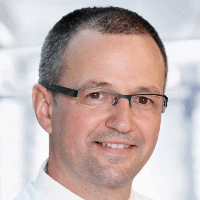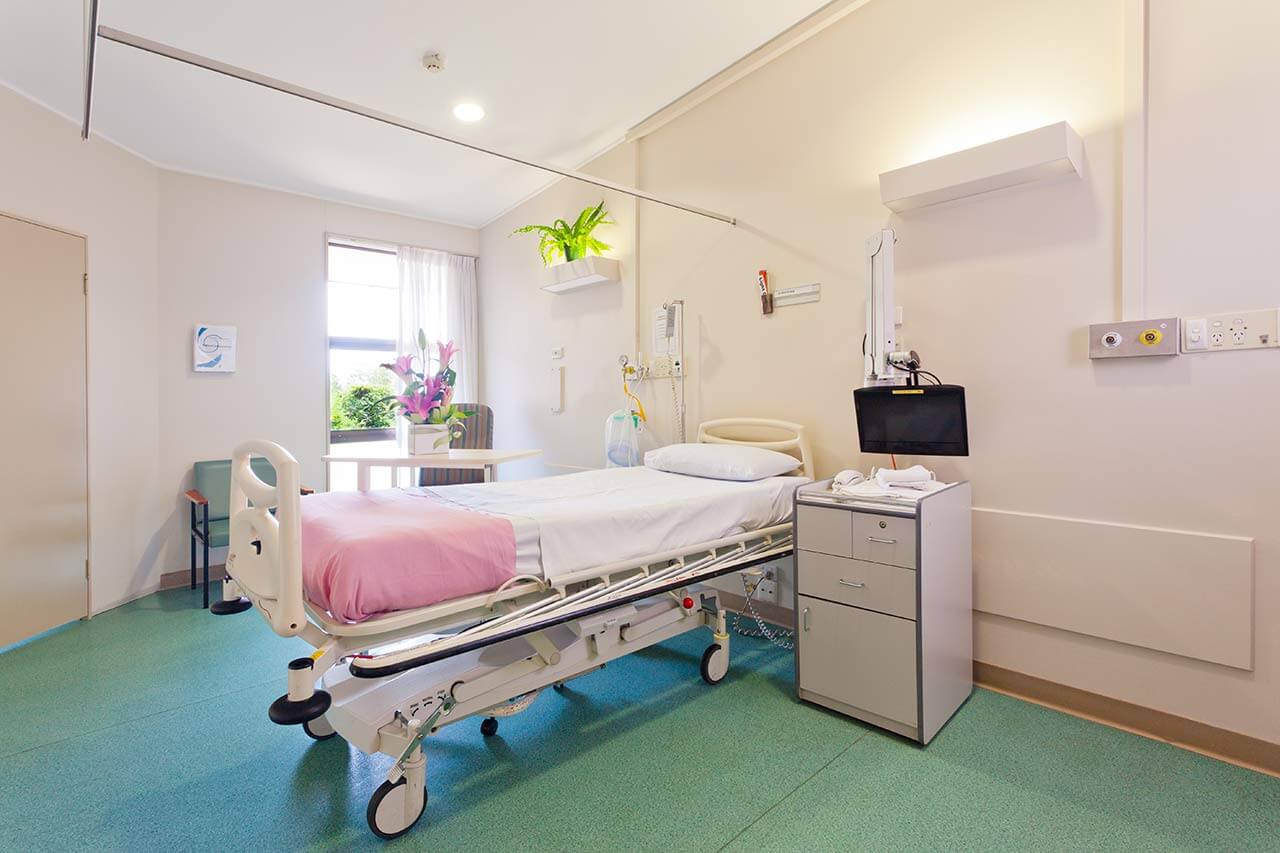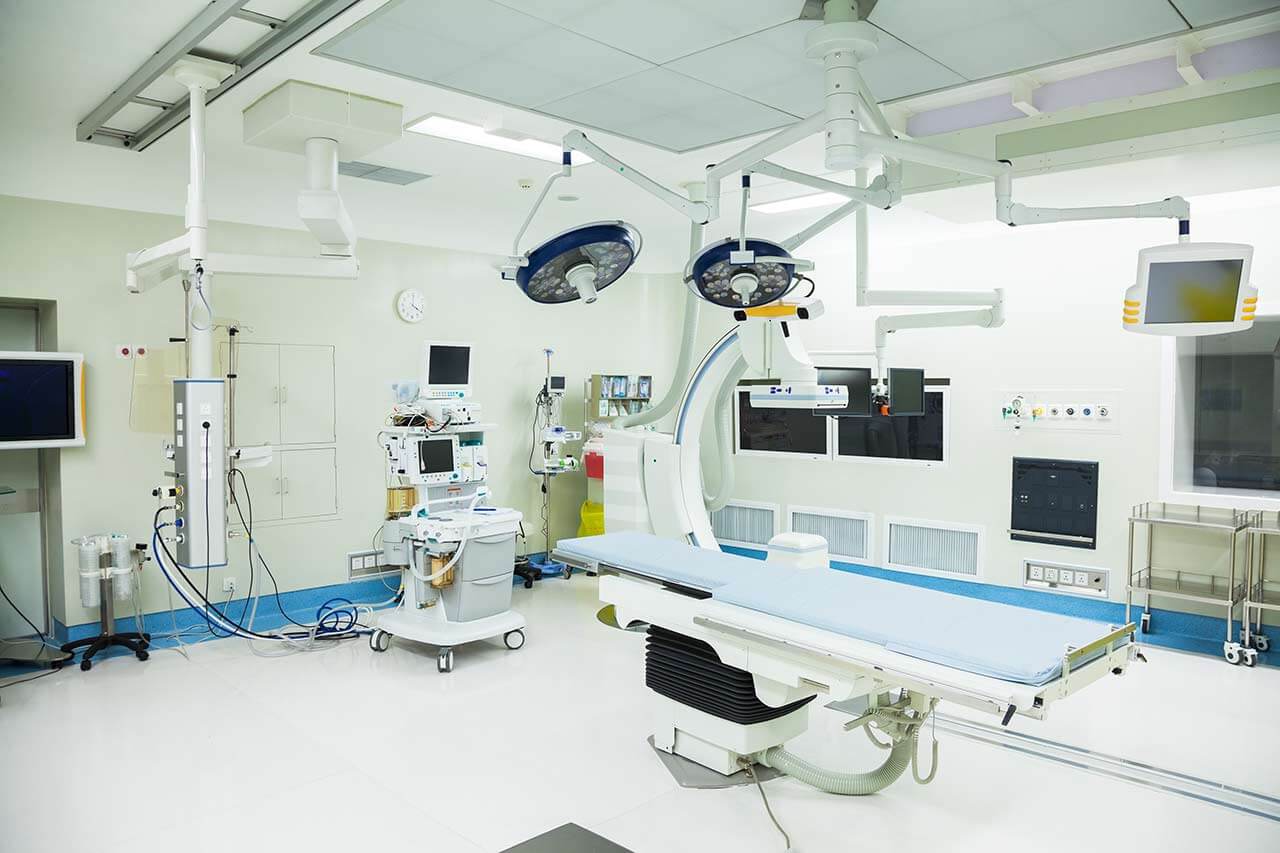
The program includes:
- Initial presentation in the clinic
- clinical history taking
- review of medical records
- physical examination
- laboratory tests:
- complete blood count
- biochemical analysis of blood
- inflammation indicators (CRP, ESR)
- indicators blood coagulation
- TSH-basal
- blood gas analysis
- chest x-ray examination
- bronchography
- pulmonary function test
- bronchoscopy with biopsy
- histological and microbiological examination
- measurement of arterial blood pressure
- electrocardiogram (ECG)
- echocardiography (ECHO)
- high-resolution computed tomography (HR-CT)
- preoperative care
- partial or wedge resection of the lung abscess
- examination of the remote tissues
- symptomatic treatment
- control examinations
- the cost of essential medicines and materials
- nursing services
- full hospital accommodation
- explanation of future recommendations
Required documents
- Medical records
- X-ray examination, MRI/CT scan (if available)
Service
You may also book:
 BookingHealth Price from:
BookingHealth Price from:
About the department
The Department of Adult and Pediatric Thoracic Surgery at the Hospital Bogenhausen Munich offers the full range of services in the field of its competence and specializes in the surgical treatment of thoracic diseases. The department performs all operations on the lungs and airways, with the exception of lung transplantation. A special area of the department's clinical activity is the surgical treatment of lung cancer and lung metastases. The surgeons of the medical facility have a wealth of experience in the field of correction of pectus carinatum and pectus excavatum. Such corrective surgical interventions are most often performed in children and adults under the age of 30. The department's operating rooms are equipped with state-of-the-art technology, so most of the interventions are performed using video-assisted thoracoscopic surgical techniques. Such operations are a modern alternative to open interventions, which require thoracotomy. At the same time, sparing operations are characterized by high efficiency. The health of patients is in the safe hands of highly qualified surgeons who have performed thousands of successful operations. During the diagnostics and at the stage of treatment planning, the doctors from the Department of Pulmonology are actively involved in the therapeutic process. The department is headed by Prof. Dr. med. Johannes Bodner.
The primary focus of the department's clinical practice is the surgical treatment of lung cancer. The department is part of the certified Lung Cancer Center (certified by the German Cancer Society), thanks to which patients can rely on the highest professionalism of doctors and the availability of new therapeutic methods to cure oncology. It is extremely rare for the patients with lung cancer to avoid surgery, and therefore the surgical resection of the tumor largely determines the success of the entire therapeutic process. The department's specialists always prefer video-assisted thoracoscopic surgery, which involves surgical access through small skin incisions without thoracotomy. In addition, thoracic surgeons always strive to maintain a healthy lung parenchyma as much as possible. At the initial stages, in the absence of metastases, the specialists often use only monotherapy, namely surgical resection of the tumor. However, the advanced stages of lung cancer require a multimodal treatment regimen with additional chemotherapy and/or radiation therapy. It should be noted that in some cases surgeons also perform lung cancer surgery without using a heart-lung machine, which reduces the risk of developing pneumonia or acute pulmonary failure. As of today, the department actively implements innovative single-port surgery, in which surgical instruments and a video camera are inserted into the thorax through a single skin incision several centimeters in size. In addition to excellent cosmetic results, the advantages of such operations include mild pain.
The department successfully performs surgery for lung metastasis resection, for example, in colon, kidney, breast cancers, etc. In most cases, to detect metastases, the doctors use radiography and computed tomography. If required, the doctors perform bronchoscopy to obtain tissue samples. To make a decision on the advisability of the surgical resection of lung metastases, the department's specialists use a combined method of positron emission tomography combined with computed tomography (PET/CT). If the patient requires surgery, the department's medical team prefers minimally invasive and single-port surgical techniques. Open interventions with thoracotomy are indicated only in the presence of multiple deeply located metastases. Surgery to remove lung metastases is often combined with chemotherapy and/or radiation therapy.
The department's thoracic surgeons specialize in the surgical treatment of pleural empyema (a purulent process in the pleural cavity). The disease most often develops due to pneumonia. Pathology causes serious respiratory disorders, and therefore requires effective treatment. At the initial stages, pleural drainage and intake of drugs are sufficient, while in case of advanced pleural empyema the only effective treatment method is surgery – thoracoscopic decortication. All operations to treat pleural empyema are performed in the department using minimally invasive techniques, which excludes thoracotomy.
Both adults and children with thoracic deformities are also in the focus of the department's thoracic surgeons. The specialization of the medical facility in this area includes the correction of pectus excavatum and pectus carinatum. Such deformations can cause curvature of the spine, functional changes in the work of the heart and lungs, and therefore require timely treatment. The doctors recommend to perform the operation in childhood. In case of mild forms of thoracic deformities, doctors can use conservative techniques, such as physiotherapy. For severe deformities, the only effective treatment option is surgical correction. Corrective surgeries are most often performed in the department using minimally invasive techniques. The main method for correcting pectus excavatum is the Nuss procedure, during which a custom-made U-shaped metal bar is placed under image guidance to align the sunken thoracic wall. In 2-3 years, a second operation is performed to remove the bar, since during this time the thoracic wall takes on a normal anatomical shape. The department's thoracic surgeons also specialize in the correction of extremely complex and combined forms of thoracic deformities. In such cases, classical open operations with thoracotomy become an option of choice.
The department's main clinical focuses include:
- Surgery for lung cancer
- Classic open surgery
- Video-assisted thoracoscopic surgery
- Single-port surgery
- Surgery for lung metastases
- Classic open surgery
- Video-assisted thoracoscopic surgery
- Single-port surgery
- Surgery for thymomas, including thymomas accompanied by myasthenia gravis
- Classic open surgery
- Video-assisted thoracoscopic surgery
- Surgery for mediastinal tumors (teratomas, lymphomas, neuromas, etc.)
- Classic open surgery
- Video-assisted thoracoscopic surgery
- Surgery for pleural empyema
- Drainage placement
- Video-assisted thoracoscopic surgery
- Surgery for pneumothorax
- Drainage placement
- Video-assisted thoracoscopic surgery
- Surgery for the correction pectus carinatum and pectus excavatum
- Video-assisted thoracoscopic operations (Nuss procedure)
- Classic open surgery
- Surgery for lung and thoracic injuries
- Drainage placement
- Video-assisted thoracoscopic surgery
- Surgery for inflammatory lung diseases, fungal lung diseases, bronchiectasis
- Video-assisted thoracoscopic surgery
- Surgery for congenital lung malformations (sequestration, cystic adenomatoid malformation, bronchogenic cysts, etc.)
- Classic open surgery
- Video-assisted thoracoscopic surgery
- Surgery for enlarged lymph nodes of the lungs and mediastinum
- Video-assisted thoracoscopic surgery
- Surgery for tracheal diseases
- Classic open surgery
- Video-assisted thoracoscopic surgery
- Surgery for pericardial effusion
- Video-assisted thoracoscopic surgery
- Other surgical options
Curriculum vitae
Higher Education and Professional Career
- 10.1990 - 07.1996 Study of Human Medicine at the Leopold-Franzens University of Innsbruck, Albert Ludwig University of Freiburg.
- 13.07.1996 Doctoral thesis defense in Internal Medicine. Subject: "The importance of perioperative infections after pancreas transplantation".
- 11.1996 - 03.1998 Postdoctoral training, Department of Internal Medicine at the University Hospital Innsbruck.
- 04.1998 - 03.2005 Training for board certification in Surgery, Department of Surgery at the University Hospital Innsbruck.
- 04.2005 Board certification in Surgery.
- 18.10.2005 Assistant Professorship.
- 03.2004 - 02.2006 Training for the Master's Degree at the University for Health Sciences, Medical Informatics and Technology, Austria.
- 23.03.2006 Master in Medical Sciences.
- 07.2007 Board certification in Thoracic Surgery.
- 2006 and 2007 USMLE I, USMLE II, USMLE III licensing examinations.
- 01.05.2007 ECFMG Certificate of the Educational Commission for Foreign Medical Graduates.
- 09.2007 - 06.2008 Clinical Fellow, Department of Surgery (focus on Thoracic and Foregut Surgery), University of Southern California, Los Angeles, California.
- 07.2008 - 09.2008 Clinical Fellow, Department of Thoracic Surgery (focus on Minimally Invasive Thoracic Surgery), Mount Sinai Hospital, New York.
- 10.2008 - 12.2008 Clinical Fellow, Department of Thoracic Surgery (focus on Minimally Invasive Thoracic Surgery), Brigham and Women's Hospital, Boston.
- 01.2009 - 01.2011 Deputy Head of the Department of Thoracic Surgery, Department of Abdominal, Transplant and Thoracic Surgery, University Hospital of Innsbruck.
- 02.2011 - 03.2015 Head of the Department of Thoracic Surgery, Department of General, Abdominal, Thoracic, Transplant and Pediatric Surgery, University Hospital Giessen UKGM.
- 06.2011 Certified by the European Board of Cardiothoracic Surgery.
- 07.2013 Member of the European Board of Thoracic Surgery.
- Since 04.2015 Chief Physician of the Department of Adult and Pediatric Thoracic Surgery at the Hospital Bogenhausen Munich.
Clinical Interests
- Minimally invasive thoracic surgery for benign and malignant diseases of the lungs, pleura and mediastinal organs.
- Video-assisted thoracoscopic (VATS) lobectomy.
- Lung resection.
Research Interests
- Staging of non-small cell lung cancer.
- Multimodal therapy for non-small cell lung cancer.
- Further development of minimally invasive surgical techniques in the field of thoracic surgery.
Memberships in Professional Societies
- European Society of Thoracic Surgeons (ESTS).
- German Society of Thoracic Surgery (DGT).
- Austrian Society of Surgery (ÖGC).
- Austrian Society of Surgical Oncology (ACO/ASSO), Head of the Working Group on Malignant Thoracic Tumors.
Photo of the doctor: (c) München Klinik Bogenhausen
About hospital
According to the reputable Focus magazine, the Hospital Bogenhausen Munich ranks among the ten best medical centers in Bavaria and among the top 50 medical facilities in Germany!
The medical facility is the Academic Hospital of Ludwig Maximilian University of Munich. The modern hospital with the highest level of services annually provides treatment to more than 85,000 patients with clinical cases of varying severity. With 1,000 beds, the hospital is the largest medical complex in the region. It provides both inpatient and outpatient treatment. In addition, the hospital has a 24-hour emergency service. The hospital's medical team consisting of highly qualified doctors and nursing staff focuses on tailored medical care, since they are convinced that every patient and his clinical case is unique. All employees of the hospital strive not only to provide the most effective treatment to the patient, but also to make his hospital stay as comfortable as possible. The work of doctors is based on respect and humane attitude towards their patients.
The hospital includes 18 specialized departments. Each department is responsible for the treatment of a particular group of diseases. The hospital is distinguished by outstanding successes in the treatment of diseases of the cardiovascular system, lungs and airways, gastrointestinal tract, musculoskeletal system, nervous system and metabolic disorders. Of particular interest is the treatment of cancers, which is provided on the basis of the Cancer Center certified in accordance with the standards of the German Cancer Society. The doctors of the hospital have a large arsenal of innovative treatment methods available only in the leading medical centers in Europe.
The high level of medical care is confirmed by the prestigious certificates of professional german medical societies. These are certificates of the German Cancer Society in the treatment of colon, pancreatic and esophageal cancers, a certificate of the German Cardiac Society, a certificate of the German Trauma Society, a certificate of the German Stroke Society and others.
The hospital has excellent conditions for the provision of comprehensive medical care. Long clinical experience of doctors in combination with high-tech medical equipment allows the specialist to work miracles, curing severe diseases, which doctors from other hospitals cannot cope with. The specialists of the hospital take care of both the physical health of patients and their emotional state, devoting enough time to personal communication. The efforts of the medical team are aimed at providing the patient with the most effective treatment and at completу cure of pathology, if possible.
Photo: (с) depositphotos
Accommodation in hospital
Patients rooms
The patients of the Hospital Bogenhausen Munich live in comfortable and cozy rooms with light colors. The hospital offers accommodation in single and double patient rooms. Each patient room has an ensuite bathroom with shower and toilet. The hospital also has patient rooms specially equipped for disabled people. The standard patient rooms include an automatically adjustable bed, a bedside table, a wardrobe, a table and chairs for receiving visitors. The patient rooms have Wi-Fi.
The hospital also offers enhanced-comfort patient rooms with a safe, a mini fridge and upholstered furniture.
The hospital has a library with many interesting books, magazines, CDs and DVDs. For the convenience of patients, the hospital also houses a small shop, a hairdresser and a cafe on its territory.
Meals and Menus
The patient and the accompanying person are offered tasty and healthy three meals a day. The diet is quite varied. Only fresh and high-quality products are used when cooking. Breakfast and dinner are usually served buffet style, while for lunch one can choose from three menus, including a dietary one.
If you are on a specific diet for some reason, you will be offered an individual menu. Please inform the medical staff about your dietary preferences prior to the treatment.
Further details
Standard rooms include:
Religion
The religious services are available upon request.
Accompanying person
During the inpatient program, the accompanying person can live with the patient in a patient room or a hotel of his choice. Our managers will help you choose the most suitable option.
Hotel
During the outpatient program, the patient can stay at the hotel of his choice. Our managers will help you choose the most suitable option.




